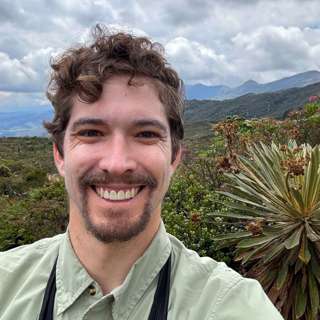
#210 – Cameron Meyer Shorb on dismantling the myth that we can’t do anything to help wild animals
"I really don’t want to give the impression that I think it is easy to make predictable, controlled, safe interventions in wild systems where there are many species interacting. I don’t think it’s easy, but I don’t see any reason to think that it’s impossible. And I think we have been making progress. I think there’s every reason to think that if we continue doing research, both at the theoretical level — How do ecosystems work? What sorts of things are likely to have what sorts of indirect effects? — and then also at the practical level — Is this intervention a good idea? — I really think we’re going to come up with plenty of things that would be helpful to plenty of animals." —Cameron Meyer ShorbIn today’s episode, host Luisa Rodriguez speaks to Cameron Meyer Shorb — executive director of the Wild Animal Initiative — about the cutting-edge research on wild animal welfare.Links to learn more, highlights, and full transcript.They cover:How it’s almost impossible to comprehend the sheer number of wild animals on Earth — and why that makes their potential suffering so important to consider.How bad experiences like disease, parasites, and predation truly are for wild animals — and how we would even begin to study that empirically.The tricky ethical dilemmas in trying to help wild animals without unintended consequences for ecosystems or other potentially sentient beings.Potentially promising interventions to help wild animals — like selective reforestation, vaccines, fire management, and gene drives.Why Cameron thinks the best approach to improving wild animal welfare is to first build a dedicated research field — and how Wild Animal Initiative’s activities support this.The many career paths in science, policy, and technology that could contribute to improving wild animal welfare.And much more.Chapters:Cold open (00:00:00)Luisa's intro (00:01:04)The interview begins (00:03:40)One concrete example of how we might improve wild animal welfare (00:04:04)Why should we care about wild animal suffering? (00:10:00)What’s it like to be a wild animal? (00:19:37)Suffering and death in the wild (00:29:19)Positive, benign, and social experiences (00:51:33)Indicators of welfare (01:01:40)Can we even help wild animals without unintended consequences? (01:13:20)Vaccines for wild animals (01:30:59)Fire management (01:44:20)Gene drive technologies (01:47:42)Common objections and misconceptions about wild animal welfare (01:53:19)Future promising interventions (02:21:58)What’s the long game for wild animal welfare? (02:27:46)Eliminating the biological basis for suffering (02:33:21)Optimising for high-welfare landscapes (02:37:33)Wild Animal Initiative’s work (02:44:11)Careers in wild animal welfare (02:58:13)Work-related guilt and shame (03:12:57)Luisa's outro (03:19:51)Producer: Keiran HarrisAudio engineering: Ben Cordell, Milo McGuire, Simon Monsour, and Dominic ArmstrongContent editing: Luisa Rodriguez, Katy Moore, and Keiran HarrisTranscriptions: Katy Moore
29 Nov 20243h 21min

#209 – Rose Chan Loui on OpenAI’s gambit to ditch its nonprofit
One OpenAI critic calls it “the theft of at least the millennium and quite possibly all of human history.” Are they right?Back in 2015 OpenAI was but a humble nonprofit. That nonprofit started a for-profit, OpenAI LLC, but made sure to retain ownership and control. But that for-profit, having become a tech giant with vast staffing and investment, has grown tired of its shackles and wants to change the deal.Facing off against it stand eight out-gunned and out-numbered part-time volunteers. Can they hope to defend the nonprofit’s interests against the overwhelming profit motives arrayed against them?That’s the question host Rob Wiblin puts to nonprofit legal expert Rose Chan Loui of UCLA, who concludes that with a “heroic effort” and a little help from some friendly state attorneys general, they might just stand a chance.Links to learn more, highlights, video, and full transcript.As Rose lays out, on paper OpenAI is controlled by a nonprofit board that:Can fire the CEO.Would receive all the profits after the point OpenAI makes 100x returns on investment.Is legally bound to do whatever it can to pursue its charitable purpose: “to build artificial general intelligence that benefits humanity.”But that control is a problem for OpenAI the for-profit and its CEO Sam Altman — all the more so after the board concluded back in November 2023 that it couldn’t trust Altman and attempted to fire him (although those board members were ultimately ousted themselves after failing to adequately explain their rationale).Nonprofit control makes it harder to attract investors, who don’t want a board stepping in just because they think what the company is doing is bad for humanity. And OpenAI the business is thirsty for as many investors as possible, because it wants to beat competitors and train the first truly general AI — able to do every job humans currently do — which is expected to cost hundreds of billions of dollars.So, Rose explains, they plan to buy the nonprofit out. In exchange for giving up its windfall profits and the ability to fire the CEO or direct the company’s actions, the board will become minority shareholders with reduced voting rights, and presumably transform into a normal grantmaking foundation instead.Is this a massive bait-and-switch? A case of the tail not only wagging the dog, but grabbing a scalpel and neutering it?OpenAI repeatedly committed to California, Delaware, the US federal government, founding staff, and the general public that its resources would be used for its charitable mission and it could be trusted because of nonprofit control. Meanwhile, the divergence in interests couldn’t be more stark: every dollar the for-profit keeps from its nonprofit parent is another dollar it could invest in AGI and ultimately return to investors and staff.Chapters:Cold open (00:00:00)What's coming up (00:00:50)Who is Rose Chan Loui? (00:03:11)How OpenAI carefully chose a complex nonprofit structure (00:04:17)OpenAI's new plan to become a for-profit (00:11:47)The nonprofit board is out-resourced and in a tough spot (00:14:38)Who could be cheated in a bad conversion to a for-profit? (00:17:11)Is this a unique case? (00:27:24)Is control of OpenAI 'priceless' to the nonprofit in pursuit of its mission? (00:28:58)The crazy difficulty of valuing the profits OpenAI might make (00:35:21)Control of OpenAI is independently incredibly valuable and requires compensation (00:41:22)It's very important the nonprofit get cash and not just equity (and few are talking about it) (00:51:37)Is it a farce to call this an "arm's-length transaction"? (01:03:50)How the nonprofit board can best play their hand (01:09:04)Who can mount a court challenge and how that would work (01:15:41)Rob's outro (01:21:25)Producer: Keiran HarrisAudio engineering by Ben Cordell, Milo McGuire, Simon Monsour, and Dominic ArmstrongVideo editing: Simon MonsourTranscriptions: Katy Moore
27 Nov 20241h 22min
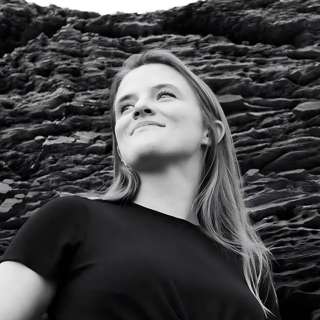
#208 – Elizabeth Cox on the case that TV shows, movies, and novels can improve the world
"I think stories are the way we shift the Overton window — so widen the range of things that are acceptable for policy and palatable to the public. Almost by definition, a lot of things that are going to be really important and shape the future are not in the Overton window, because they sound weird and off-putting and very futuristic. But I think stories are the best way to bring them in." — Elizabeth CoxIn today’s episode, Keiran Harris speaks with Elizabeth Cox — founder of the independent production company Should We Studio — about the case that storytelling can improve the world.Links to learn more, highlights, and full transcript.They cover:How TV shows and movies compare to novels, short stories, and creative nonfiction if you’re trying to do good.The existing empirical evidence for the impact of storytelling.Their competing takes on the merits of thinking carefully about target audiences.Whether stories can really change minds on deeply entrenched issues, or whether writers need to have more modest goals.Whether humans will stay relevant as creative writers with the rise of powerful AI models.Whether you can do more good with an overtly educational show vs other approaches.Elizabeth’s experience with making her new five-part animated show Ada — including why she chose the topics of civilisational collapse, kidney donations, artificial wombs, AI, and gene drives.The pros and cons of animation as a medium.Career advice for creative writers.Keiran’s idea for a longtermist Christmas movie.And plenty more.Check out Ada on YouTube! Material you might want to check out before listening:The trailer for Elizabeth’s new animated series Ada — the full series will be available on TED-Ed’s YouTube channel in early January 2025Keiran’s pilot script and a 10-episode outline for his show Bequest, and his post about the show on the Effective Altruism ForumChapters:Cold open (00:00:00)Luisa's intro (00:01:04)The interview begins (00:02:52)Is storytelling really a high-impact career option? (00:03:26)Empirical evidence of the impact of storytelling (00:06:51)How storytelling can inform us (00:16:25)How long will humans stay relevant as creative writers? (00:21:54)Ada (00:33:05)Debating the merits of thinking about target audiences (00:38:03)Ada vs other approaches to impact-focused storytelling (00:48:18)Why animation (01:01:06)One Billion Christmases (01:04:54)How storytelling can humanise (01:09:34)But can storytelling actually change strongly held opinions? (01:13:26)Novels and short stories (01:18:38)Creative nonfiction (01:25:06)Other promising ways of storytelling (01:30:53)How did Ada actually get made? (01:33:23)The hardest part of the process for Elizabeth (01:48:28)Elizabeth’s hopes and dreams for Ada (01:53:10)Designing Ada with an eye toward impact (01:59:16)Alternative topics for Ada (02:05:33)Deciding on the best way to get Ada in front of people (02:07:12)Career advice for creative writers (02:11:31)Wikipedia book spoilers (02:17:05)Luisa's outro (02:20:42)Producer: Keiran HarrisAudio engineering: Ben Cordell, Milo McGuire, Simon Monsour, and Dominic ArmstrongContent editing: Luisa Rodriguez, Katy Moore, and Keiran HarrisTranscriptions: Katy Moore
21 Nov 20242h 22min
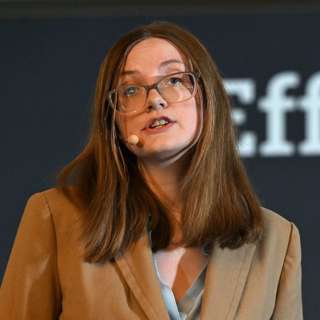
#207 – Sarah Eustis-Guthrie on why she shut down her charity, and why more founders should follow her lead
"I think one of the reasons I took [shutting down my charity] so hard is because entrepreneurship is all about this bets-based mindset. So you say, “I’m going to take a bunch of bets. I’m going to take some risky bets that have really high upside.” And this is a winning strategy in life, but maybe it’s not a winning strategy for any given hand. So the fact of the matter is that I believe that intellectually, but l do not believe that emotionally. And I have now met a bunch of people who are really good at doing that emotionally, and I’ve realised I’m just not one of those people. I think I’m more entrepreneurial than your average person; I don’t think I’m the maximally entrepreneurial person. And I also think it’s just human nature to not like failing." —Sarah Eustis-GuthrieIn today’s episode, host Luisa Rodriguez speaks to Sarah Eustis-Guthrie — cofounder of the now-shut-down Maternal Health Initiative, a postpartum family planning nonprofit in Ghana — about her experience starting and running MHI, and ultimately making the difficult decision to shut down when the programme wasn’t as impactful as they expected.Links to learn more, highlights, and full transcript.They cover:The evidence that made Sarah and her cofounder Ben think their organisation could be super impactful for women — both from a health perspective and an autonomy and wellbeing perspective.Early yellow and red flags that maybe they didn’t have the full story about the effectiveness of the intervention.All the steps Sarah and Ben took to build the organisation — and where things went wrong in retrospect.Dealing with the emotional side of putting so much time and effort into a project that ultimately failed.Why it’s so important to talk openly about things that don’t work out, and Sarah’s key lessons learned from the experience.The misaligned incentives that discourage charities from shutting down ineffective programmes.The movement of trust-based philanthropy, and Sarah’s ideas to further improve how global development charities get their funding and prioritise their beneficiaries over their operations.The pros and cons of exploring and pivoting in careers.What it’s like to participate in the Charity Entrepreneurship Incubation Program, and how listeners can assess if they might be a good fit.And plenty more.Chapters:Cold open (00:00:00)Luisa’s intro (00:00:58)The interview begins (00:03:43)The case for postpartum family planning as an impactful intervention (00:05:37)Deciding where to start the charity (00:11:34)How do you even start implementing a charity programme? (00:18:33)Early yellow and red flags (00:22:56)Proof-of-concept tests and pilot programme in Ghana (00:34:10)Dealing with disappointing pilot results (00:53:34)The ups and downs of founding an organisation (01:01:09)Post-pilot research and reflection (01:05:40)Is family planning still a promising intervention? (01:22:59)Deciding to shut down MHI (01:34:10)The surprising community response to news of the shutdown (01:41:12)Mistakes and what Sarah could have done differently (01:48:54)Sharing results in the space of postpartum family planning (02:00:54)Should more charities scale back or shut down? (02:08:33)Trust-based philanthropy (02:11:15)Empowering the beneficiaries of charities’ work (02:18:04)The tough ask of getting nonprofits to act when a programme isn’t working (02:21:18)Exploring and pivoting in careers (02:27:01)Reevaluation points (02:29:55)PlayPumps were even worse than you might’ve heard (02:33:25)Charity Entrepreneurship (02:38:30)The mistake of counting yourself out too early (02:52:37)Luisa’s outro (02:57:50)Producer: Keiran HarrisAudio engineering: Ben Cordell, Milo McGuire, Simon Monsour, and Dominic ArmstrongContent editing: Luisa Rodriguez, Katy Moore, and Keiran HarrisTranscriptions: Katy Moore
14 Nov 20242h 58min

Parenting insights from Rob and 8 past guests
With kids very much on the team's mind we thought it would be fun to review some comments about parenting featured on the show over the years, then have hosts Luisa Rodriguez and Rob Wiblin react to them. Links to learn more and full transcript.After hearing 8 former guests’ insights, Luisa and Rob chat about:Which of these resonate the most with Rob, now that he’s been a dad for six months (plus an update at nine months).What have been the biggest surprises for Rob in becoming a parent.How Rob's dealt with work and parenting tradeoffs, and his advice for other would-be parents.Rob's list of recommended purchases for new or upcoming parents.This bonus episode includes excerpts from:Ezra Klein on parenting yourself as well as your children (from episode #157)Holden Karnofsky on freezing embryos and being surprised by how fun it is to have a kid (#110 and #158)Parenting expert Emily Oster on how having kids affect relationships, careers and kids, and what actually makes a difference in young kids’ lives (#178)Russ Roberts on empirical research when deciding whether to have kids (#87)Spencer Greenberg on his surveys of parents (#183)Elie Hassenfeld on how having children reframes his relationship to solving pressing global problems (#153)Bryan Caplan on homeschooling (#172)Nita Farahany on thinking about life and the world differently with kids (#174)Chapters:Cold open (00:00:00)Rob & Luisa’s intro (00:00:19)Ezra Klein on parenting yourself as well as your children (00:03:34)Holden Karnofsky on preparing for a kid and freezing embryos (00:07:41)Emily Oster on the impact of kids on relationships (00:09:22)Russ Roberts on empirical research when deciding whether to have kids (00:14:44)Spencer Greenberg on parent surveys (00:23:58)Elie Hassenfeld on how having children reframes his relationship to solving pressing problems (00:27:40)Emily Oster on careers and kids (00:31:44)Holden Karnofsky on the experience of having kids (00:38:44)Bryan Caplan on homeschooling (00:40:30)Emily Oster on what actually makes a difference in young kids' lives (00:46:02)Nita Farahany on thinking about life and the world differently (00:51:16)Rob’s first impressions of parenthood (00:52:59)How Rob has changed his views about parenthood (00:58:04)Can the pros and cons of parenthood be studied? (01:01:49)Do people have skewed impressions of what parenthood is like? (01:09:24)Work and parenting tradeoffs (01:15:26)Tough decisions about screen time (01:25:11)Rob’s advice to future parents (01:30:04)Coda: Rob’s updated experience at nine months (01:32:09)Emily Oster on her amazing nanny (01:35:01)Producer: Keiran HarrisAudio engineering: Ben Cordell, Milo McGuire, Simon Monsour, and Dominic ArmstrongContent editing: Luisa Rodriguez, Katy Moore, and Keiran HarrisTranscriptions: Katy Moore
8 Nov 20241h 35min
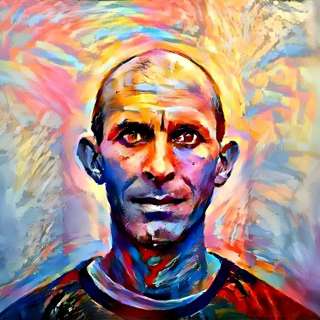
#206 – Anil Seth on the predictive brain and how to study consciousness
"In that famous example of the dress, half of the people in the world saw [blue and black], half saw [white and gold]. It turns out there’s individual differences in how brains take into account ambient light. Colour is one example where it’s pretty clear that what we experience is a kind of inference: it’s the brain’s best guess about what’s going on in some way out there in the world. And that’s the claim that I’ve taken on board as a general hypothesis for consciousness: that all our perceptual experiences are inferences about something we don’t and cannot have direct access to." —Anil SethIn today’s episode, host Luisa Rodriguez speaks to Anil Seth — director of the Sussex Centre for Consciousness Science — about how much we can learn about consciousness by studying the brain.Links to learn more, highlights, and full transcript.They cover:What groundbreaking studies with split-brain patients and blindsight have already taught us about the nature of consciousness.Anil’s theory that our perception is a “controlled hallucination” generated by our predictive brains.Whether looking for the parts of the brain that correlate with consciousness is the right way to learn about what consciousness is.Whether our theories of human consciousness can be applied to nonhuman animals.Anil’s thoughts on whether machines could ever be conscious.Disagreements and open questions in the field of consciousness studies, and what areas Anil is most excited to explore next.And much more.Chapters:Cold open (00:00:00)Luisa’s intro (00:01:02)The interview begins (00:02:42)How expectations and perception affect consciousness (00:03:05)How the brain makes sense of the body it’s within (00:21:33)Psychedelics and predictive processing (00:32:06)Blindsight and visual consciousness (00:36:45)Split-brain patients (00:54:56)Overflow experiments (01:05:28)How much can we learn about consciousness from empirical research? (01:14:23)Which parts of the brain are responsible for conscious experiences? (01:27:37)Current state and disagreements in the study of consciousness (01:38:36)Digital consciousness (01:55:55)Consciousness in nonhuman animals (02:18:11)What’s next for Anil (02:30:18)Luisa’s outro (02:32:46)Producer: Keiran HarrisAudio engineering: Ben Cordell, Milo McGuire, Simon Monsour, and Dominic ArmstrongContent editing: Luisa Rodriguez, Katy Moore, and Keiran HarrisTranscriptions: Katy Moore
1 Nov 20242h 33min
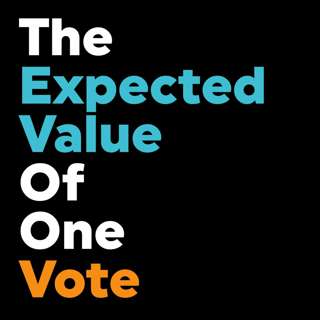
How much does a vote matter? (Article)
If you care about social impact, is voting important? In this piece, Rob investigates the two key things that determine the impact of your vote:The chances of your vote changing an election’s outcome.How much better some candidates are for the world as a whole, compared to others.He then discusses a couple of the best arguments against voting in important elections, namely:If an election is competitive, that means other people disagree about which option is better, and you’re at some risk of voting for the worse candidate by mistake.While voting itself doesn’t take long, knowing enough to accurately pick which candidate is better for the world actually does take substantial effort — effort that could be better allocated elsewhere.Finally, Rob covers the impact of donating to campaigns or working to "get out the vote," which can be effective ways to generate additional votes for your preferred candidate.We last released this article in October 2020, but we think it largely still stands up today.Chapters:Rob's intro (00:00:00)Introduction (00:01:12)What's coming up (00:02:35)The probability of one vote changing an election (00:03:58)How much does it matter who wins? (00:09:29)What if you’re wrong? (00:16:38)Is deciding how to vote too much effort? (00:21:47)How much does it cost to drive one extra vote? (00:25:13)Overall, is it altruistic to vote? (00:29:38)Rob's outro (00:31:19)Producer: Keiran Harris
28 Okt 202432min
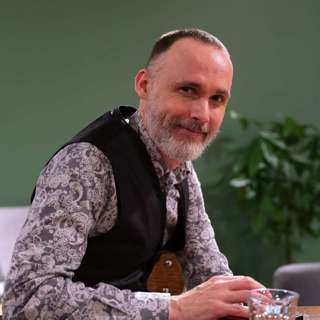
#205 – Sébastien Moro on the most insane things fish can do
"You have a tank split in two parts: if the fish gets in the compartment with a red circle, it will receive food, and food will be delivered in the other tank as well. If the fish takes the blue triangle, this fish will receive food, but nothing will be delivered in the other tank. So we have a prosocial choice and antisocial choice. When there is no one in the other part of the tank, the male is choosing randomly. If there is a male, a possible rival: antisocial — almost 100% of the time. Now, if there is his wife — his female, this is a prosocial choice all the time."And now a question: Is it just because this is a female or is it just for their female? Well, when they're bringing a new female, it’s the antisocial choice all the time. Now, if there is not the female of the male, it will depend on how long he's been separated from his female. At first it will be antisocial, and after a while he will start to switch to prosocial choices." —Sébastien MoroIn today’s episode, host Luisa Rodriguez speaks to science writer and video blogger Sébastien Moro about the latest research on fish consciousness, intelligence, and potential sentience.Links to learn more, highlights, and full transcript.They cover:The insane capabilities of fish in tests of memory, learning, and problem-solving.Examples of fish that can beat primates on cognitive tests and recognise individual human faces.Fishes’ social lives, including pair bonding, “personalities,” cooperation, and cultural transmission.Whether fish can experience emotions, and how this is even studied.The wild evolutionary innovations of fish, who adapted to thrive in diverse environments from mangroves to the deep sea.How some fish have sensory capabilities we can’t even really fathom — like “seeing” electrical fields and colours we can’t perceive.Ethical issues raised by evidence that fish may be conscious and experience suffering.And plenty more.Producer: Keiran HarrisAudio engineering: Ben Cordell, Milo McGuire, Simon Monsour, and Dominic ArmstrongContent editing: Luisa Rodriguez, Katy Moore, and Keiran HarrisTranscriptions: Katy Moore
23 Okt 20243h 11min






















